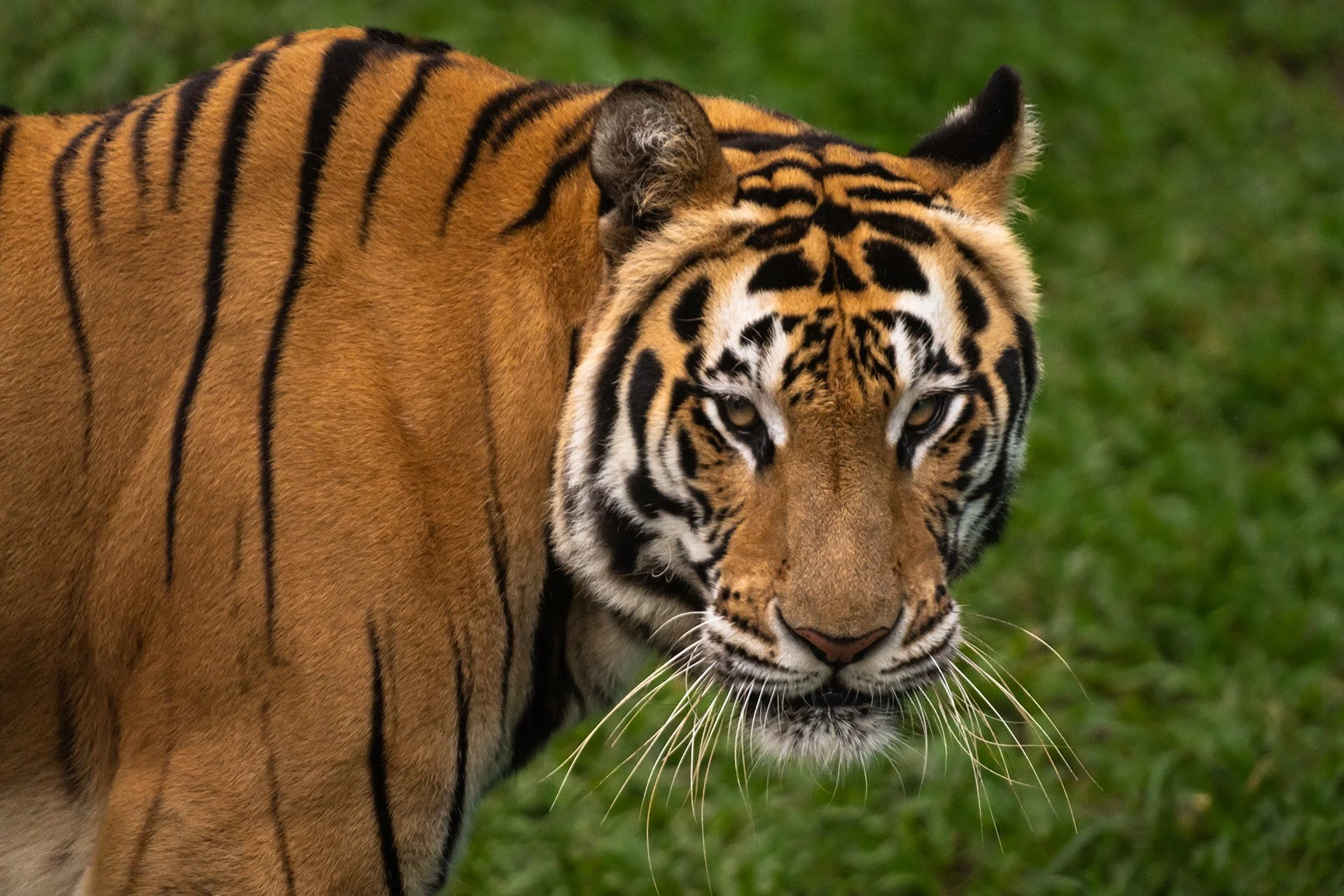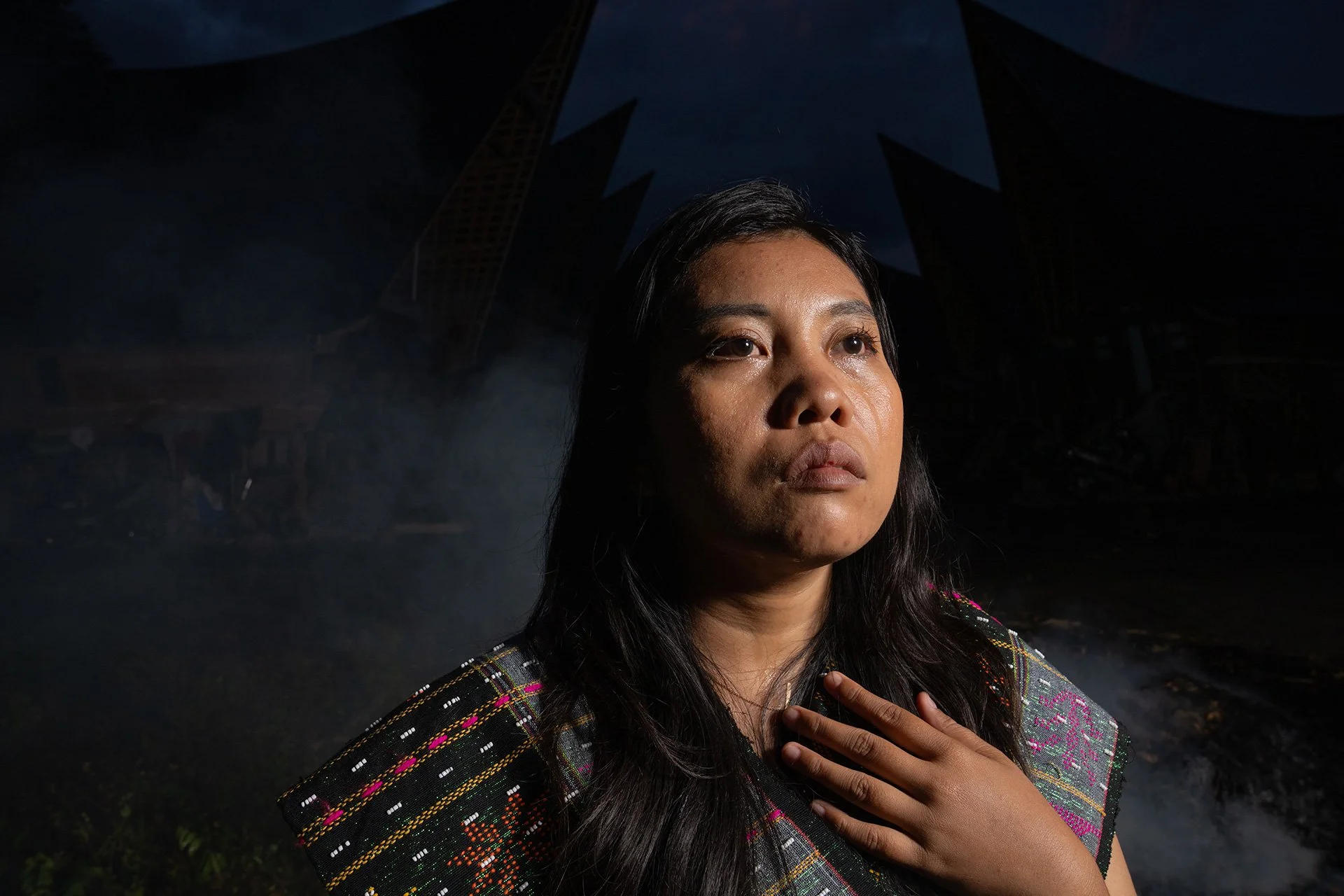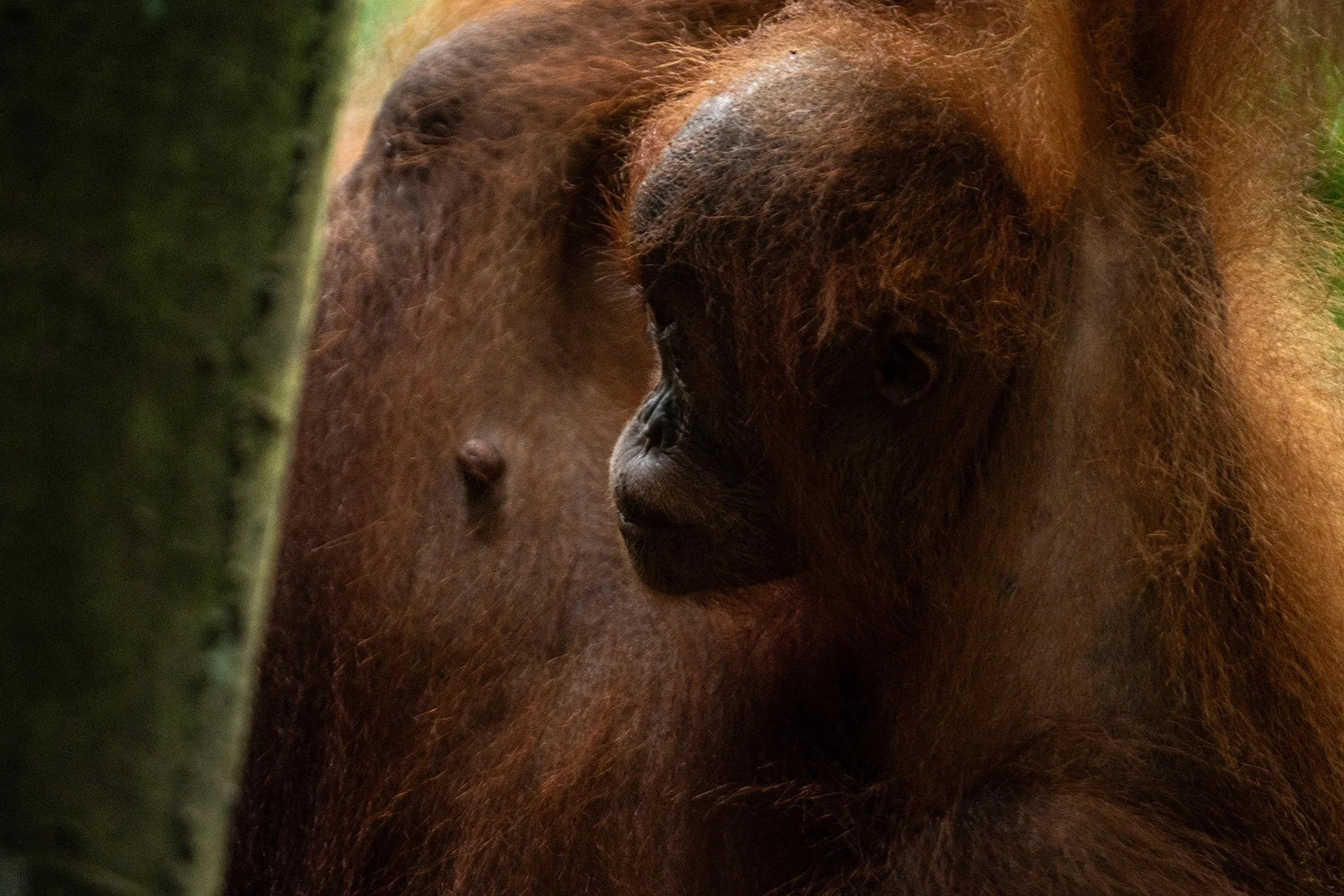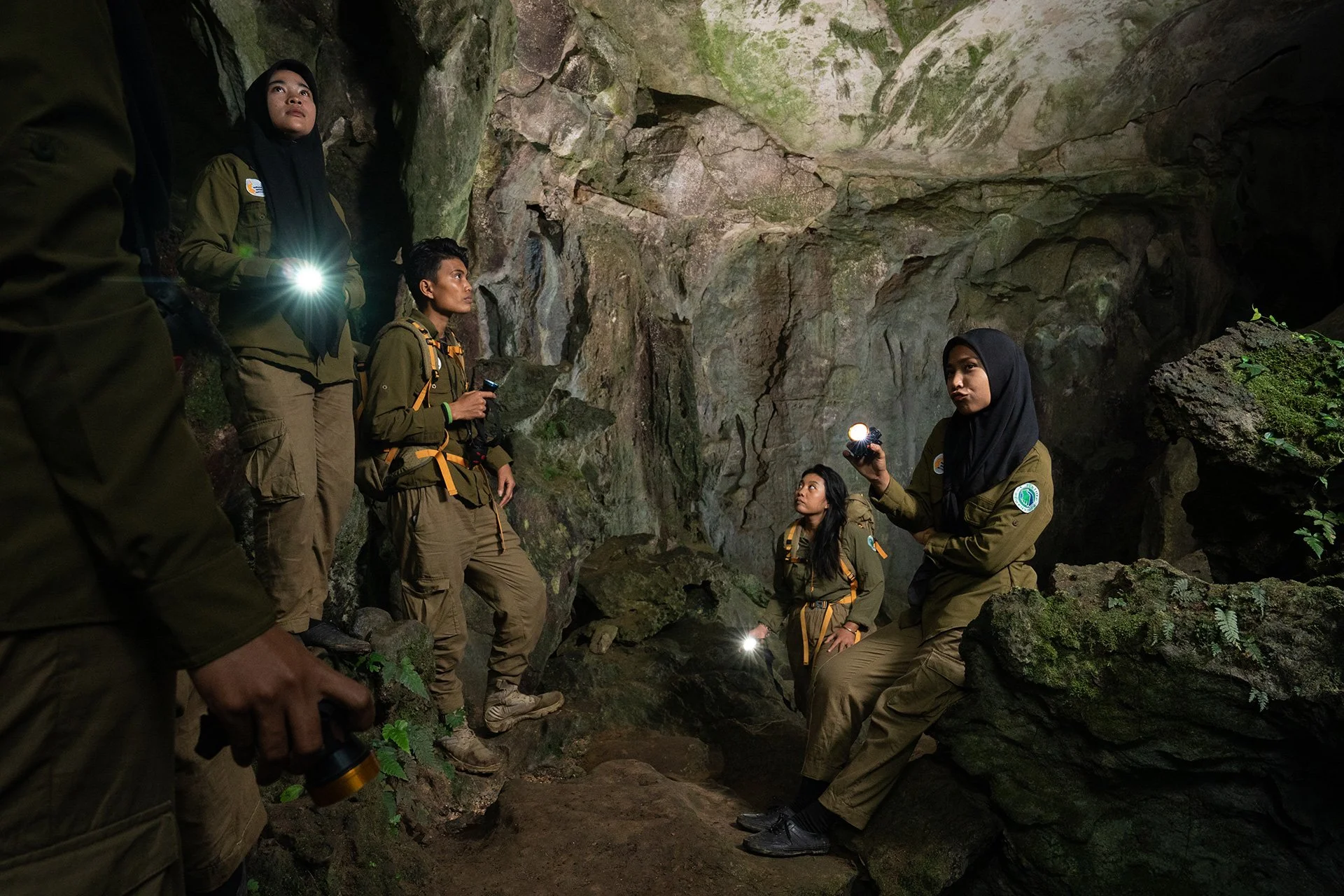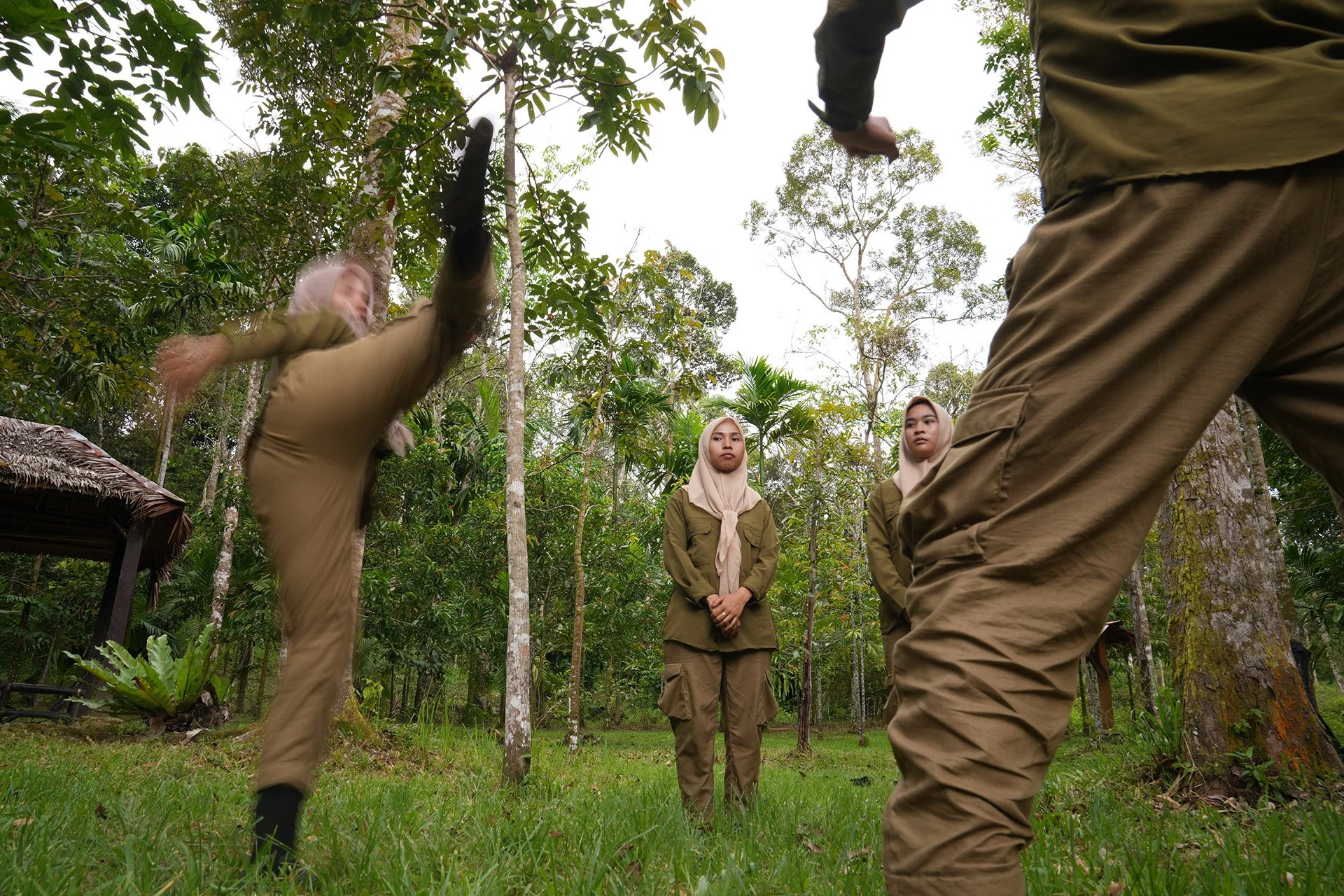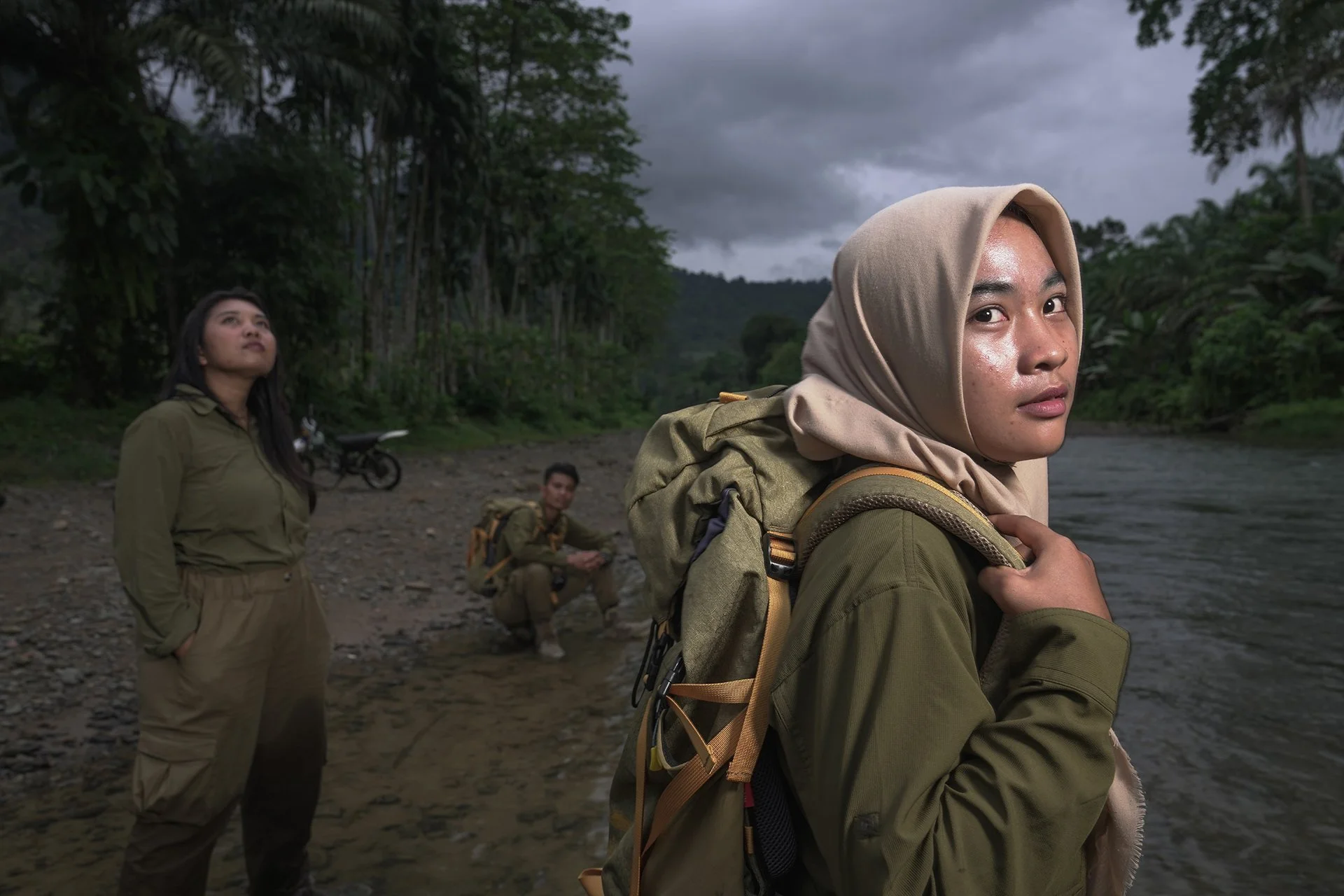The Souls Dedicated to Protecting Mother Earth
By Safina Center Fellow Dani Khan Da Silva
A critically endangered Sumatran tiger held captive at the Medan Zoo. This tiger has since died due to malnourishment and maltreatment along with the other tigers who were exhibited at the zoo at the same time. ©Dani Khan Da Silva
Tears fall down Nayla Azmi’s cheeks as she receives the news that yet another tiger on display at the Medan Zoo has died, making it the sixth to perish in only a few months. The Medan Zoo, established in 1952 is one of the oldest zoos in Indonesia, with a poor reputation for the conditions in which it keeps its captive animals. It is one of the few places where tigers that are rescued from poaching or conflict situations can go, and the conditions are atrocious. “The tiger is one of our ancestors, which is why we call them Opung,” Nayla says quietly. “Opung,” in Batak—Nayla’s language—means “grandparent,” demonstrating kinship between Nayla’s Indigenous Batak community and the tiger—a kinship that has been disconnected by historical and ongoing colonization of forest land that was once the home of her people.
Nayla reflects on how much her ancestors went through for her to survive. This is an emotional moment after having discussions with an Elder in Huta Raja, which awakened ancestral memories in Nayla's spirit. ©Dani Khan Da Silva
Sumatra is one of the larger islands in the western part of the archipelago of Indonesia, and is home to the Leuser ecosystem, spanning 2.6 million hectares and includes lowland and montane rainforests, nine rivers, three lakes, and over 185,000 hectares of carbon-rich peatlands. It is the only place in the world where Sumatran tiger, orangutan, elephant and rhino live together. Sadly, they are all listed as critically endangered according to the IUCN as a result of poaching for body parts, illegal hunting, and alarming habitat destruction mainly due to rampant palm oil plantation expansion and the expansion of other monocrops such as rubber, and cattle grazing. In 1980, the Gunung Leuser National Park was established and encompasses 1.1 million hectares of the Leuser ecosystem.
Semi-wild orangutan ("mawas" in Bahasa) mother and baby who frequently overnight at a lodge that borders the Gunung Leuser National Park. ©Dani Khan Da Silva
“Since Dutch colonization, Indonesia has also become a very patriarchal society. Like so much else, the field of conservation—which is only necessary in the first place because of colonialism—has become dominated by foreigners and men. This is a problem, because it comes with a certain way of thinking,” says Nayla. “For example, so many of their ‘community development’ programs frame Indigenous people as threats to the forest who need to be educated or relocated. This mindset is very patronizing and denies the relationship Indigenous people have always had with the forest. These organizations also don’t ask the question of why people are poaching, or what economic problems our people are facing. We never needed money in the past, yet we’ve been forced into a system that has had us at a disadvantage from the start.”
Nayla is the founder of an organization called “Nuraga Bhumi Institute,” which consists of a small patrol team of Indigenous women who live near the Gunung Leuser National Park. “Nuraga Bhumi” means “souls dedicated to protecting Mother Earth,” and is an accurate description. Typically a job for men only, within a field dominated by patriarchy (globally, but especially locally), Nuraga Bhumi are demonstrating how important it is for women to play a part in what has historically been a role for both men and women rooted in stewardship of a people strongly connected to their land. “I estimate that only about 15% of Sumatran conservationists are women. The percentage of Indigenous women is probably half that. As result, I have experienced a great deal of sexual harassment in my career and I know I’m not alone,” says Nayla.
The Nuraga Bhumi patrol team in a cave near the border of the Gunung Leuser National Park. ©Dani Khan Da Silva
Unfortunately, the ramifications of colonialism by the Dutch meant most Indigenous groups were targeted as “rebels,” and they were punished in the most brutal forms for not giving up their land. They were driven into the caves and forests and mountains. Many had to give up their Indigenous identities—in the case of Nayla’s family, their Batak identity—for Muslim or Christian identities in order to survive.
Wulan is advanced in taekwon do and regularly shares her skills with the team. It is important for the team to know self-defense skills in case they have to protect themselves or their teammates. ©Dani Khan Da Silva
Together, we made a documentary called Nuraga Bhumi, as a means to validate the work they do and to encourage others to follow suit—by honoring their traditions, their lands, and their ancestors. And to invite women and youth into a safe space to practice “conservation,” or as they see it—their birthright. The documentary has won numerous awards and was featured at the Cannes World Film Festival, The Bali International Film Festival, the European Cinema Film Festival, and will screen at the Nepal International Film Festival in 2025. Most excitingly, we will screen the documentary to a local Sumatran audience, including wildlife authorities and more, in September, 2025.
On the way back home from a day of patrol work. ©Dani Khan Da Silva

